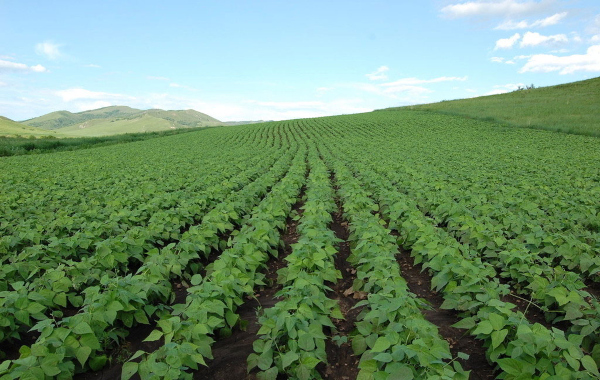The self-sufficiency can be measured by the large export of Agricultural Commodities from India viz., rice, wheat, sugar, cotton, spices, fruits, marine products and buffalo meat etc after meeting domestic requirement.
In order to enhance production and productivity of Oilseeds and Pulses, the Government of India is implementing National Food Security Mission (NFSM) on Oilseeds, Oil palm and Pulses. The NFSM – Pulses programme is implemented in 644 districts of 28 States and Union Territories (UTs) of Jammu & Kashmir and Ladakh. Under the programme, incentives are given to the farmers for cluster demonstrations, seed distribution & production of certified seeds of High Yielding Varieties (HYVs), farm machineries/tools, efficient water saving devices, plant protection chemicals, nutrient management, soil ameliorants and trainings to the farmers. Further, in order to enhance production of pulses, initiatives viz., Support for breeder seed production, creation of 150 Seed Hubs for Certified seed production at Indian Council of Agricultural Research (ICAR)/State Agriculture Universities (SAUs)/Krishi Vigyan Kendras (KVKs), Distribution of seed minikits of pulses for the varieties notified within 10 years free of the cost to the farmers, conducting of cluster front line demonstrations (CFLDs) on improved latest package of practices through ICAR/KVKs/SAUs, support to Central Seed Agencies to produce certified seed of pulses latest varieties notified within 5 years, Special Action Plan for increasing pulses productivity, Targeting Rice fallow Area (TRFA) programme in 11 states across the country etc are being undertaken.
For oilseeds production, NFSM – Oilseeds programme provides support to the states and implementing agencies for seed component covering purchase of breeder seeds, production of foundation/certified seeds, distribution of certified seeds, supply of seed minikits, creation of seed hubs; production inputs component covering Plant Protection (PP) equipments, PP chemicals, nuclear polyhedrosis virus (NPV)/bio agent, gypsum/pyrites/lime etc., bio-fertilizers, improved farm implements, sprinkler sets, water carrying pipes, seed storage bins, seed treating drum and transfer of technology component covering cluster/block demonstrations, Field Level Demonstrations and training through National Agricultural Research System (NARS) and Krishi Vigyan Kendra (KVK), Integrated Pest Management on Farmer Field School (FFS) mode, training of farmers, officers/extension workers, need based Research and Development projects, seminar/kisan mela etc. Besides, Oil palm development programme under NFSM is being implemented in 12 states of the country. The assistance is given to the States for area expansion, planting material, maintenance of plantation, on cultivation systems, machinery/tools, demonstrations, trainings to the farmers, setting up of oil palm processing units etc.
In addition to above, the Department of Agriculture and Farmers Welfare is implementing various schemes viz., Rashtriya Krishi Vikas Yojna (RKVY), Pradhan Mantri Krishi Sinchai Yojana (PMKSY), Formation of Farmers Producer Organization (FPOs), National Project on Soil Health and Fertility etc for promotion of Oilseeds and Pulses.
The adoption of the above technologies by the farmers through these schemes has led to increase in production of oilseeds and pulses from 31.52 million tonnes (mt) and 22.08 mt during 2018-19 to 36.57 mt and 25.58 mt during 2020-21 (as per 3rd advance estimates), respectively.
You may also like
-
Trade Connect E-platform For Exports Is Single Window, Fast, Accessible And Transformational: Shri Piyush Goyal
-
Dot Simplifies Approval Processes For Telecom Licenses And Wireless Equipment
-
Coal Production and Supply Trends on Positive Trajectory
-
Union Minister To Release Booklets On Promotion Of Indigenous Species & Conservation Of States Fishes
-
2nd India-Japan Finance Dialogue held in Tokyo on 6th September, 2024
